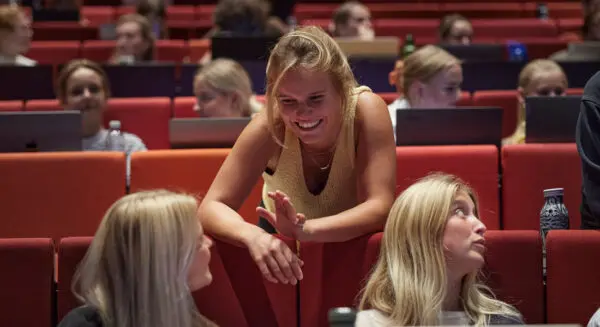
Lisbon, Portugal
Gender Economics: Women in Science
When:
21 July - 24 July 2025
Credits:
0 EC
Read more
Economics
When:
08 July - 12 July 2024
School:
Institution:
Maastricht University
City:
Country:
Language:
English
Credits:
2 EC
Fee:
699 EUR

Economics is a dynamic and multifaceted field that provides valuable insights into how societies allocate resources, make decisions, and shape their financial systems. This course, “Introduction to Economic Theories,” is designed to give students a foundational understanding of key economic theories, both at the macroeconomic and microeconomic levels. By delving into Macroeconomics with a focus on Keynesian economics, Neoclassical economics, and Marxian economics, as well as Microeconomics, with emphasis on Consumer Choice Theory and Theory of Firm Behaviour, students will explore the diverse and influential perspectives that underpin economic analysis.
Macroeconomics:
Keynesian Economics:
• Analyse the historical context and key insights from John Maynard Keynes, and the application of Keynesian thought in economic policymaking.
• Explore the core principles of Keynesian economics, emphasizing the role of aggregate demand, government intervention, and fiscal policy in managing economic cycles.
Neoclassical Economics:
• Examine the principles of neoclassical economics, emphasizing the rationality of individuals and firms, market competition, and the efficiency of resource allocation.
• Discuss how neoclassical economics has influenced contemporary economic thinking and policy.
Marxian Economics:
• Explore the contributions of Karl Marx and the critical analysis of capitalism from a Marxian perspective.
• Gain an understanding of Marxian economics, focusing on class struggle, historical materialism, and the labour theory of value.
Microeconomics:
Consumer Choice Theory:
• Delve into the principles of consumer choice theory, which studies how individuals make decisions about allocating their limited resources to maximize utility and satisfaction when faced with various consumption options.
• Examine the impact of factors such as changes in income, prices, and personal preferences on consumer choices, and their implications for market demand and resource allocation in different economic environments.
Behavioural Theory of the Firm:
• Investigate how firms make decisions regarding production, pricing, and resource allocation to maximize profit.
• Examine the role of cost minimization and the theory of the firm’s supply.
Vriti Sharma
This course, “Introduction to Economic Theories,” is designed to be inclusive and accessible to a wide range of students. Whether you’re a budding economist, business major, social science and history enthusiast, or someone passionate about global affairs, this course offers valuable insights into the core economic theories that shape our world. It doesn’t require specific prerequisites or a designated major, making it an excellent choice for anyone with a general interest in economics.
• Understand the Core Concepts: Develop a solid understanding of the foundational concepts and principles of each economic theory, both in macroeconomics and microeconomics.
• Analyse Historical Context: Explore the historical context in which these theories developed and the key figures who shaped their evolution.
• Examine Policy Implications: Investigate how each economic theory has influenced economic policy decisions at both macroeconomic and microeconomic levels.
• Apply Theories to Real-World Scenarios: Apply these theories to real-world economic issues, fostering an understanding of their practical applications.
• Promote Critical Thinking: Encourage critical thinking and informed discussions about the strengths, weaknesses, and relevance of different economic theories in today’s global economy.
Fee
699 EUR, Tuition fee
When:
08 July - 12 July 2024
School:
Institution:
Maastricht University
Language:
English
Credits:
2 EC

Lisbon, Portugal
When:
21 July - 24 July 2025
Credits:
0 EC
Read more

Copenhagen, Denmark
When:
07 July - 23 July 2025
Credits:
7.5 EC
Read more

Amsterdam, Netherlands
When:
05 July - 19 July 2025
Credits:
0 EC
Read more